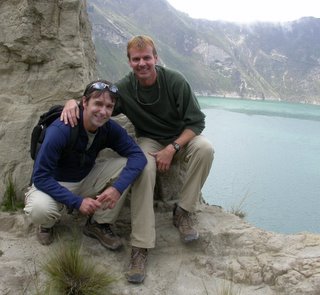book notes
Traffic: why we drive the way we do by Tom Vanderbilt
"the pinkie" is a new finger insult in Australia after a government ad campaign suggesting that aggressive driving compensates for a small penis.
"In a very precise way, you're made dumb. You can shout as much as you want but nobody's going to hear you."
Because people are often unaware of their own driving mistakes (and highly aware of those of others) a former mayor of Bogotá, Columbia, hired mimes to mock drivers and pedestrians who violated traffic laws.
Results from bicycle-car experiments at the U. of Bath by Ian Walker:
-- the farther a bicycle is riding from the curb, the more room cars give you on the other side.
-- cars give less room when you wear a helmet perhaps because they think a helmeted bicyclist is more experienced, or looks more impersonal, or is better protected from injury is the car hits him.
Journalists says that phone interviews done while the subject is driving always come out poorly, suggesting the driving cell-phone talkers are performing poorly at booth tasks.
People traveling at a high speed for a long time tend to underestimate their speed as they slow down, which is why cars hit highway exit ramps at high speeds.
In L.A., crosswalks in general never give you a Walk sign unless you push the button. "If you do not push the button, you will stand there until you are eventually ticketed for vagrancy" The one exception are Sabbath crosswalks in places like Century City, where Walk signs switch automatically from Friday sundown through Saturday sundown so that observant Jews aren't required to violate the Sabbath by pushing the crosswalk button (or jaywalk)
An estimated 83% of all car pools are simply "fam pools" (a parent driving around kids), raising questions about the current wisdom of car-pools lanes, which are supposed to reduce the number of cars on the street.
"Where it was once the overwhelming norm for children to walk to school, today only about 15% do. Parents on "school run" are thought to boost traffic on the roads by some 30 percent"
from 1950's to 2008, percentage of car trips for work went down from 40 percent to 16 percent.
During an LA dock strike, xxx numbers of trucks were taken off the highways, but the actual reduction in vehicles was only xx. The fact that the highways were slightly less crowded stimulated driving that otherwise would not have existed.
After the Super Bowl finished, the crash rate increases 41 percent and is even higher in the city that lost.
Driving a motorcycle is 22 times more likely to result in death than driving a car.
"Road deaths deaths in the three months after 9/11, for example, were 9 percent higher than those during similar periods in the two years before."
"the pinkie" is a new finger insult in Australia after a government ad campaign suggesting that aggressive driving compensates for a small penis.
"In a very precise way, you're made dumb. You can shout as much as you want but nobody's going to hear you."
Because people are often unaware of their own driving mistakes (and highly aware of those of others) a former mayor of Bogotá, Columbia, hired mimes to mock drivers and pedestrians who violated traffic laws.
Results from bicycle-car experiments at the U. of Bath by Ian Walker:
-- the farther a bicycle is riding from the curb, the more room cars give you on the other side.
-- cars give less room when you wear a helmet perhaps because they think a helmeted bicyclist is more experienced, or looks more impersonal, or is better protected from injury is the car hits him.
Journalists says that phone interviews done while the subject is driving always come out poorly, suggesting the driving cell-phone talkers are performing poorly at booth tasks.
People traveling at a high speed for a long time tend to underestimate their speed as they slow down, which is why cars hit highway exit ramps at high speeds.
In L.A., crosswalks in general never give you a Walk sign unless you push the button. "If you do not push the button, you will stand there until you are eventually ticketed for vagrancy" The one exception are Sabbath crosswalks in places like Century City, where Walk signs switch automatically from Friday sundown through Saturday sundown so that observant Jews aren't required to violate the Sabbath by pushing the crosswalk button (or jaywalk)
An estimated 83% of all car pools are simply "fam pools" (a parent driving around kids), raising questions about the current wisdom of car-pools lanes, which are supposed to reduce the number of cars on the street.
"Where it was once the overwhelming norm for children to walk to school, today only about 15% do. Parents on "school run" are thought to boost traffic on the roads by some 30 percent"
from 1950's to 2008, percentage of car trips for work went down from 40 percent to 16 percent.
During an LA dock strike, xxx numbers of trucks were taken off the highways, but the actual reduction in vehicles was only xx. The fact that the highways were slightly less crowded stimulated driving that otherwise would not have existed.
After the Super Bowl finished, the crash rate increases 41 percent and is even higher in the city that lost.
Driving a motorcycle is 22 times more likely to result in death than driving a car.
"Road deaths deaths in the three months after 9/11, for example, were 9 percent higher than those during similar periods in the two years before."


<< Home